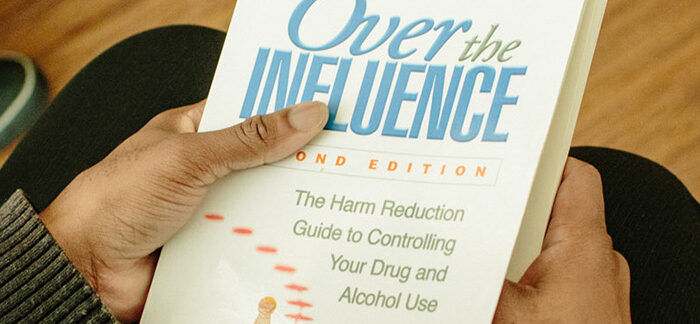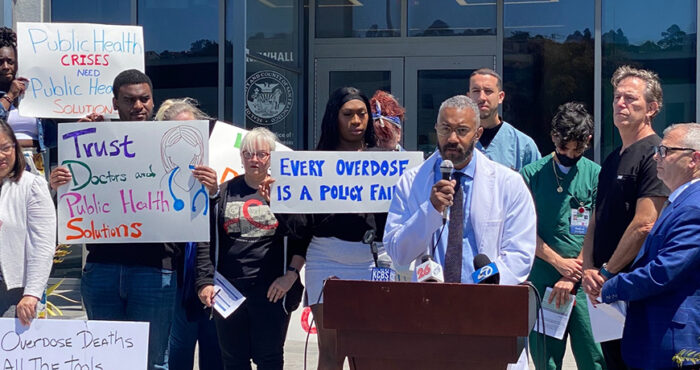Relapse doesn’t mean “losing it all”

Relapse.
It’s a sticky word, loaded with stigma.
What does it mean?
For me, it happened after nine months “clean.”
Life transformed, everything was pointing towards “healed” or “recovered.” Then one night of careless drinking and I’m back to where I was nearly a year ago. The chaotic use resumed in full swing–the suffering, the fear and anxiety, the hunger and thirst. Everything that once oppressed me reemerged like it never left.
Most folk in the recovery world will acknowledge that relapse is, in fact, a part of nearly everyone’s recovery journey.
The irony is that there doesn’t seem to be much room for it built into recovery spaces. The dominant narrative around addiction tells me I’ve lost it all. The nine months of sobriety are gone, and now I must begin again.
To me, this feels inaccurate and unhelpful–destructive, even, to the progress I have achieved. Any good harm reductionist would agree.
So I will keep my nine months sober(ish), thank you, and continue onward accordingly: nine months with one slip, lapse, relapse, pick your poison. The deed is done and now it’s time to not just face the music, but listen to it.
So what’s next? Although I am a staunch harm reductionist, I’ve oft longed for the vast community of twelve-step programs. It seems every church has a manifestation of meetings in one way or another. So I tentatively look up a relevant group and meekly attend, sitting on the outskirts, a sheep in wolf’s clothing.
I don’t belong here. It’s evident the moment the meeting starts.
“We admitted we were powerless over alcohol.” “I’m not though,” I thought for the millionth time.
“Made a decision to turn our will and our lives over to the care of God.” “Yikes,” I thought. That loaded word again, “God.”
I was in a catch-22–craving a community of support, but facing judgment from those who knew I wasn’t fully abstinent.
I can confidently say that my relationship to cannabis is not a chaotic one. The worst that happens is that I overeat. Not great, but definitely not meth. Otherwise, it’s a substance I can use to relax, and enjoy the present moment. That’s why I’ve continued to use cannabis during the nine months of my recovery from meth–a strategy that harm reductionists call “targeted abstinence.”
Those in a twelve-step program, however, have been trained to say that my reasoning for continuing to use cannabis is simply “the addict in me” trying to rationalize my irrationality. They leave no room for the possibility that I may actually know myself better than they know me.
So I sit through the meeting, feeling guilty, knowing I have no intention of complete sobriety, debating whether or not I share the truth when connecting with people afterwards at fellowship.
We need more options in the recovery world than all-or-nothing, abstinence or chaotic use thinking. We need safe spaces for those who have relapsed to re-enter recovery at their own pace, free of judgment, full of support. We need to invest in and replicate programs that honor the individual, that allow them to be the arbiter of their fate, the creator of their own recovery program.
This is where the Stonewall Project of San Francisco AIDS Foundation–and other harm reduction programs–come in.
After six years of being in a dangerous dance, a limbo between recovery and active use, it was a Stonewall Project counselor who was the first to ask, “What are your substance use goals?”
And I was finally given permission to break it down by substance, rather than the twelve-step approach which says, “A drug is a drug is a drug.” So I broke it down for myself: Alcohol, risky but not hopelessly addicted. Weed, a longtime friend in hard times. Meth, a mortal enemy.
I was then introduced to the concepts of targeted abstinence, substance use management, and medication-assisted treatment. It blew my mind that for nearly six whole years, the only recovery option that was presented to me was complete sobriety.
Abstinence means you’re fully sober from all drugs.
Targeted abstinence means that you’re fully sober from a specific or specific drugs. In my case, I wanted to stop using meth, but was OK with continuing cannabis.
Substance use management is tailoring your substance use in a manageable way: for instance, by using only on the weekends, or developing other strategies that make your substance use manageable or better.
Medication-assisted treatment is using medication to aid in one’s recovery. For instance, you can use suboxone for opioid addiction or naltrexone for alcohol use disorder.
So for those who believe in the beauty of harm reduction, we must accept that relapse can be part of the journey. Afterwards, we ask: What could I have done differently? How could I have used (assuming it was inevitable) but reduced the domino-effect damage on my life?
Every person, whether in recovery or not, deserves to know the full range of options they have to achieve their substance use goals. And every person in recovery deserves the truth of their relapse: Although painful, it is also an opportunity to learn, to adapt our strategies, to humble ourselves, and to grow.
Find in-person and virtual substance use counseling and support through the Stonewall Project.
Get meth harm reduction info, support, and resources online at Tweaker.org.









